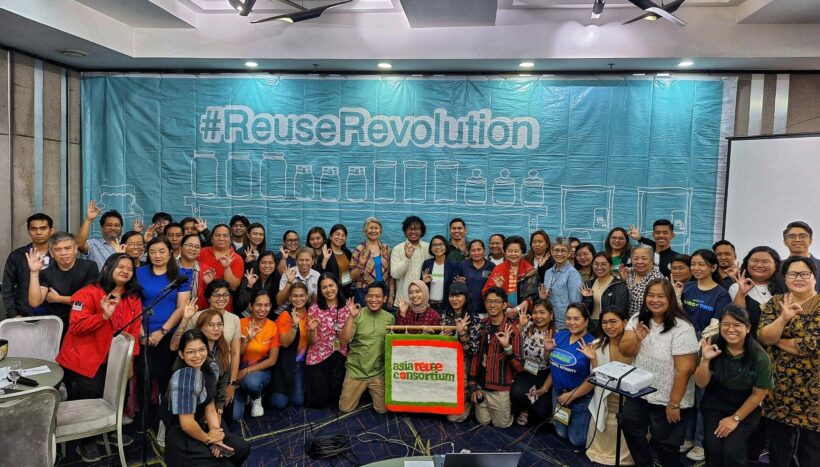Seeking the Mainstreaming of Reuse, Refill vs Single-Use Plastics
20 January 2025, Manila — In celebration of Zero Waste Month, plastic waste reduction advocates kicked off the “Philippine Reuse Study Tour and Conference” in a bid to amplify the viability of reuse and refill solutions, as a way to address the scourge of plastic pollution.
The three-day event consisted of a conference with reuse practitioners and other multi-sectoral stakeholders alongside site visits to reuse and refill programs across Metro Manila. It was held at Hive Hotel in Quezon City from January 20 to 22, co-organized by Mother Earth Foundation, Greenpeace Philippines, GAIA, Break Free from Plastic and Plasticdiet Indonesia.
The study tour aims to address existing challenges and opportunities around reuse and refill systems and, show attending LGU and government agency officials as well as private sector representatives that reuse and refill are not just sustainable and necessary, but also practical and doable.
Over 164 million sachets, 57 million shopping bags and 45.2 million plastic labo bags are used daily in the Philippines with prevailing e-commerce and food delivery practices worsening the crisis. Environmental groups have long called for reuse and refill solutions alongside bans on single-use plastics, particularly sachets, as these not only create litter and exacerbate floods but also pollute water sources and break down into harmful microplastics that find their way into our food and bodies . [1]
Reuse and refill systems are upstream solutions that enable people to reuse packaging, eliminating the need for wasteful sachets and other throwaway containers. When adopted at scale, reuse and refill can replace disposables and effectively reduce plastic waste. Reuse systems, together with the right policies to cut down plastic production and use, can address the plastic crisis at the root of the problem. [2]
Refill and reuse are feasible and easy to implement. Initiatives such as Kuha sa Tingi , Juana Zero Express , Back to Basics Ecostore, and a zero waste carinderia in Manila, prove that these are viable sustainable business models, something that can be done alongside city-wide plastic bans. Groups believe that these could all be replicated and scaled at the national level.
The groups are calling on legislators and national government agencies such as the Department of Environment and Natural Resources (DENR), Department of Trade and Industry (DTI), and the Food and Drug Administration (FDA) to advance policies to institutionalize and mainstream reuse and refill systems, including ensuring:
-
the targets are set for the transition to refill systems for frequently purchased food, cosmetic, and household products packaged in single-use plastics becomes mandatory;
-
large-scale enterprises and medium-scale enterprises that manufacture the aforementioned products should be required to transition to refilling as a product delivery system, and mandatory targets for the transition are set;
-
reuse and refill systems are made more competitive compared to single-use packaging such as sachets to enable producers and consumers to easily shift to reuse and refill;
-
large-scale retailers should establish refilling stations in their establishments to accommodate the producers’ refillable or unpackaged products;
-
proper guidelines that support reuse and refill are issued by the Food and Drug Administration (FDA) to advance the transition to reuse; and,
-
enterprises and consumers are incentivized with support mechanisms to overcome challenges, such as capital investment, time constraints and inconvenience.
With local government units and communities leading the charge in the countryside, green groups believe that it’s about time for lawmakers and businesses to act.
Here are some photos of the PH Reuse Study Tour and Conference:
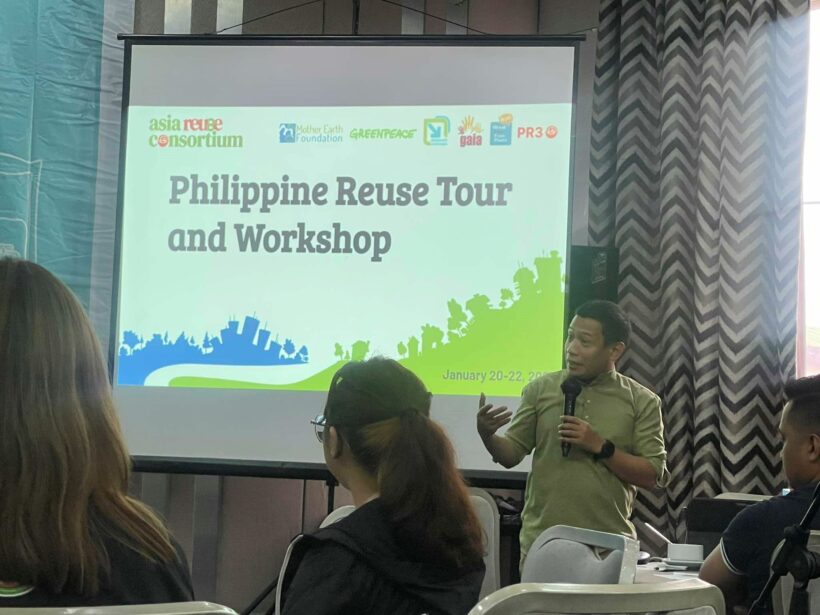
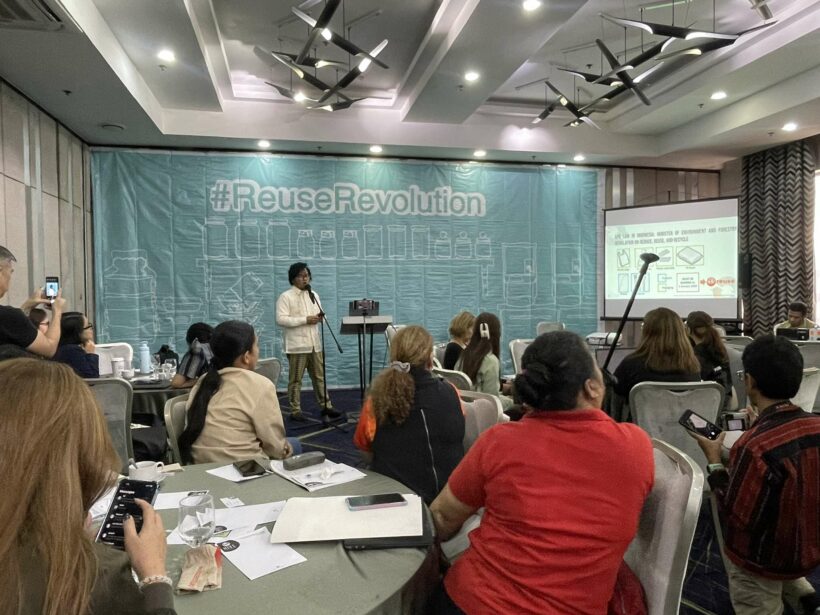


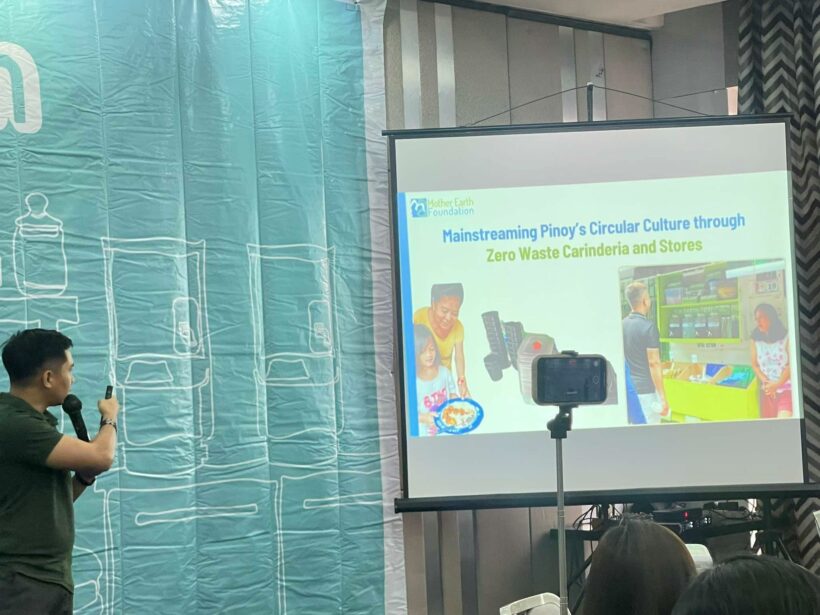

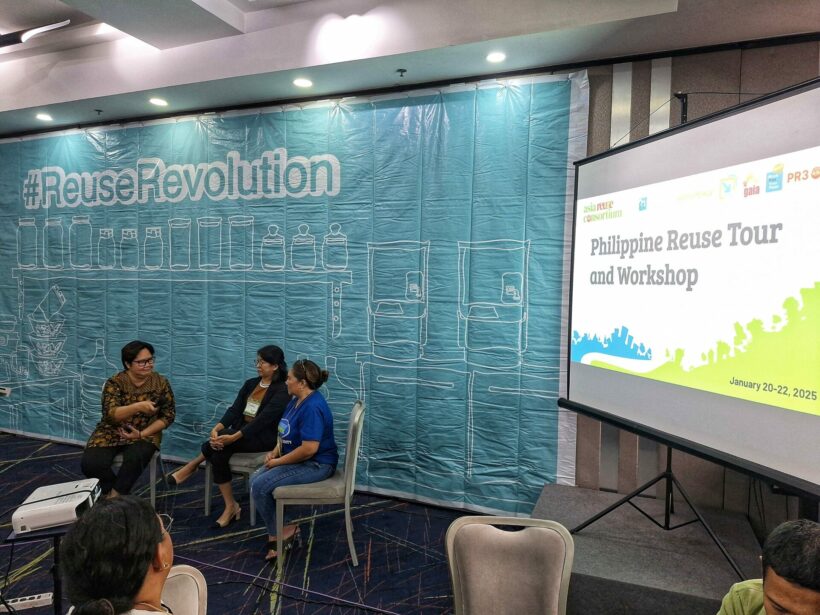
###
Quotes from Organizers:
“Plastics last practically forever, but the plastic crisis doesn’t have to, because solutions like reduction, reuse, and refill do exist. We’ve seen how reuse and refill models were successful in reducing plastic use, while providing environmental and economic benefits to local communities and businesses. It’s about time that these solutions, which have been around before single-use plastics were introduced by companies, are backed by businesses and the government to become the Filipino norm again.” — Marian Ledesma, Zero Waste Campaigner, Greenpeace Philippines
“Reuse and refill practices are an integral part of our culture in the Philippines but seem to have been forgotten in the fast-pace of modern times, specially in the urban areas. This needs to be placed again in our consciousness, strengthened by reuse systems and policies. Reuse, such as MEF’s zero-waste sari-sari stores and carinderias, enables consumers to buy affordable items that otherwise would be too expensive and perpetuates the linear-sachet economy. Above all, reuse and refill systems reduce plastic pollution, a “monster” in ecological solid waste management and in our Zero Waste Cities work.
Moving forward, with the success and momentum of our community partners, we urge the National Government, LGUs, FMCGs, and other key stakeholders to join and support the transition into a more sustainable system, and enable policies that institutionalize and help reuse systems in the Philippines.” — Sonia Mendoza, Chairman, Mother Earth Foundation.
“Reuse presents an opportunity for us to scale up our Zero Waste Cities work in the Philippines. The City of San Fernando in Pampanga has achieved 87% waste diversion via segregated collection, composting, and recycling, and reuse coupled with policies that target problematic single-use plastics would allow the city to achieve real zero waste.
And when we talk about zero waste policies, it’s essential to engage with all impacted sectors – especially waste workers and waste pickers. By intentionally integrating waste pickers and waste workers in designing our reuse systems, we ensure that their jobs are protected and our systems are fit for purpose. Their roles in collecting and recovering materials are indispensable – and as such should be compensated for their service and not only for the materials they collect.” — Froilan Grate, Regional Coordinator, GAIA Asia Pacific.
“Local initiatives and small businesses in the Philippines—from carinderias, to sari-sari stores and reuse-and-refill zero waste stores— have shown that reuse and refill practices are still very much alive in our communities and with the right and adequate support, it is possible to scale these reuse and refill solutions not only to end plastic pollution but also to address climate concerns. It is high time that different sectors come together to play a part in creating enabling environments for these solutions and zero-waste systems to thrive and become the norm again. Sound policies, standards, investments, and corporate accountability could pave the way for a complete shift from single-use throwaway plastics to a reuse economy that benefits all sectors.” — Faye Ferrer, Network Organizer, Break Free From Plastic.
“Indonesia has recently initiated a preliminary study [3] to develop a reuse roadmap, aligning with its national target to ban several single-use plastics by 2030. This roadmap is designed for manufacturers, retailers, and the food and beverage service industry. It outlines the definition of reuse, various reuse systems that producers can adopt, and the essential requirements for their implementation. The development of reuse systems in Indonesia is further supported by regulations from the National Food and Drug Administration, which oversees refill systems for certain cosmetic products and is currently formulating refill guidelines for processed food products. Through this roadmap, there is significant potential to strengthen regulations for reuse systems, particularly at the local government level, as they hold the authority to manage and handle waste within their jurisdictions.” — Rahyang Nusantara, Deputy Director, Plasticdiet Indonesia.
Links:
[1] Sachet Economy: Big Problems in Small Packets
[2] Mainstreaming Reuse: Policy Recommendations for Reuse and Refill Systems in the Philippines
Photo credits: Albert Lozada / Greenpeace, Khrisna Nañola / Mother Earth Foundation.


